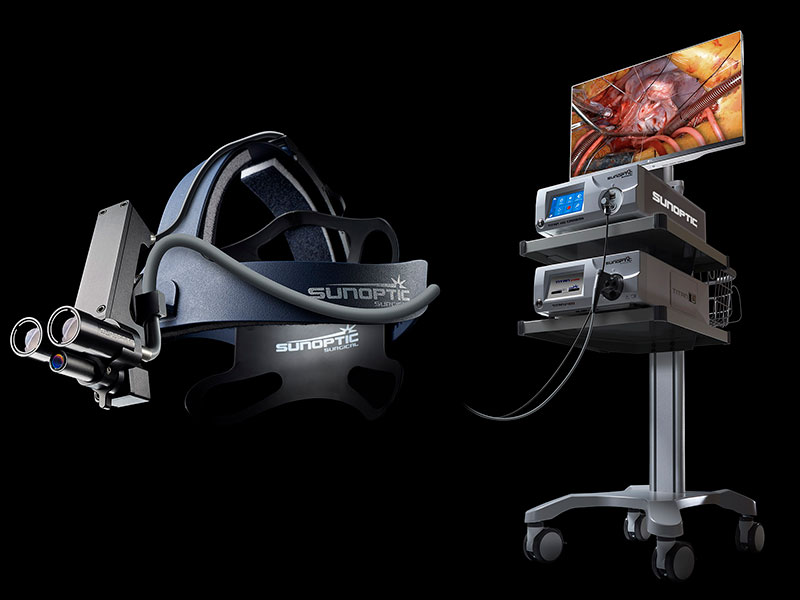Private Investigator Technology: Transforming Investigations
Private investigator technology has revolutionized the investigative process, ushering in a new era of advanced tools and techniques. From traditional methods like surveillance and data collection to modern advancements in […]

Private investigator technology has revolutionized the investigative process, ushering in a new era of advanced tools and techniques. From traditional methods like surveillance and data collection to modern advancements in data analysis and forensic software, technology has significantly enhanced the capabilities of private investigators.
The rise of digitalization has further transformed the industry, providing investigators with access to vast amounts of data and sophisticated tools for uncovering the truth. This technological evolution has enabled investigators to delve deeper into investigations, uncover hidden patterns, and present compelling evidence.
Evolution of Private Investigator Technology

Private investigators have long relied on their skills and intuition to gather information and solve cases. However, the advent of technology has dramatically transformed the investigative process, revolutionizing the way private investigators operate. This evolution has witnessed a shift from traditional methods to sophisticated digital tools, significantly enhancing efficiency, accuracy, and effectiveness.
Traditional Methods
Traditional private investigation methods involved extensive fieldwork, relying heavily on observation, surveillance, and human interaction. Investigators would often conduct stakeouts, gather information through interviews, and perform background checks manually. These methods were time-consuming and labor-intensive, often relying on intuition and experience.
Technological Advancements
The introduction of technology has significantly modernized the private investigation industry, offering a range of tools that streamline investigations and enhance the gathering and analysis of information. This section will explore key milestones and innovations that have shaped the evolution of private investigator technology.
Early Innovations
The early adoption of technology by private investigators included the use of basic tools such as:
- Cameras: These allowed investigators to document evidence and record events discreetly.
- Audio Recorders: These were used to capture conversations and obtain crucial information.
- Computers: Early computers facilitated the storage and analysis of data, providing a more organized approach to investigations.
Digital Revolution
The digital revolution ushered in a new era for private investigators, with the introduction of sophisticated tools and technologies that significantly enhanced their capabilities. These advancements include:
- Internet and Databases: Access to vast online databases and search engines revolutionized the process of gathering information. Investigators could now quickly access public records, social media profiles, and other online resources, providing a wealth of data for their investigations.
- Surveillance Technologies: Advancements in surveillance technologies, such as GPS tracking devices, hidden cameras, and drones, enabled investigators to monitor locations and individuals remotely, providing real-time information and evidence.
- Forensic Software: Specialized forensic software emerged, allowing investigators to analyze digital evidence, recover deleted data, and trace online activities. This technology played a crucial role in cybercrime investigations and digital forensics.
Impact of Digitalization
The digitalization of the private investigation industry has had a profound impact, transforming the way investigators operate and the nature of their work. This section will explore the key impacts of digitalization on the private investigation industry.
Enhanced Efficiency and Effectiveness
Digital tools have significantly enhanced the efficiency and effectiveness of investigations. By automating tasks such as data collection, analysis, and reporting, investigators can save time and resources, allowing them to focus on more complex aspects of their work. This increased efficiency translates into faster turnaround times and improved results.
Greater Accuracy and Reliability
Digital technologies provide investigators with access to a wealth of data, allowing them to gather information from multiple sources and verify its accuracy. This reduces the reliance on subjective interpretations and enhances the reliability of their findings.
New Investigative Techniques
Digitalization has also opened up new investigative techniques, such as social media analysis, online reputation management, and cybercrime investigations. These techniques allow investigators to explore new avenues of information gathering and provide insights into online activities and digital footprints.
Increased Accessibility
The use of digital tools has made private investigation services more accessible to a wider range of clients. Online platforms and mobile applications allow individuals and businesses to connect with investigators remotely, reducing geographic barriers and making their services more convenient.
Surveillance and Monitoring Tools
Private investigators utilize a range of surveillance and monitoring tools to gather evidence and information in their investigations. These tools, when used ethically and legally, can be invaluable in uncovering facts and supporting their clients’ cases. However, it’s crucial to acknowledge the potential ethical and legal implications associated with their use.
GPS Tracking Devices
GPS tracking devices are small, discreet devices that can be attached to vehicles or individuals to track their location in real-time. These devices provide investigators with a detailed record of a subject’s movements, which can be vital in cases involving infidelity, child custody disputes, or missing persons.
- GPS tracking devices can be easily concealed, making them an effective tool for covert surveillance.
- They offer real-time location data, allowing investigators to monitor a subject’s movements continuously.
- GPS tracking devices generate detailed reports that can be used as evidence in legal proceedings.
Video Surveillance Systems, Private investigator technology
Video surveillance systems are widely used by private investigators to capture visual evidence of events or activities. These systems can range from simple, standalone cameras to sophisticated multi-camera systems with remote access capabilities.
- Video surveillance systems provide visual documentation of events, which can be crucial in proving or disproving allegations.
- They can be used to monitor specific locations, such as businesses, residences, or public areas.
- Advanced systems offer features like night vision, motion detection, and remote viewing capabilities.
Social Media Monitoring Tools
Social media monitoring tools allow investigators to track and analyze online activity on platforms like Facebook, Twitter, and Instagram. These tools can provide insights into a subject’s personal life, relationships, and activities, which can be relevant in investigations involving fraud, infidelity, or background checks.
- Social media monitoring tools can access public profiles, posts, and interactions, revealing valuable information.
- They can help investigators identify potential witnesses, gather evidence, or uncover hidden connections.
- These tools require a balance between information gathering and respecting individual privacy.
Phone Tracking Software
Phone tracking software, often referred to as “spyware,” allows investigators to monitor a target’s phone activity, including calls, texts, location data, and internet browsing history. While these tools can be effective in certain investigations, their use raises significant ethical and legal concerns.
- Phone tracking software can provide detailed information about a subject’s phone usage and location.
- It can be used to monitor communications, identify contacts, and track internet activity.
- The use of phone tracking software without proper consent is generally illegal and raises serious privacy concerns.
Data Analysis and Research Platforms: Private Investigator Technology
In the modern private investigation landscape, data analysis and research platforms play a pivotal role in extracting valuable insights from vast amounts of information. These platforms act as powerful tools for investigators, enabling them to collect, organize, and analyze data from diverse sources, ultimately aiding in solving complex cases.
Data Collection and Organization
Data analysis platforms are designed to gather information from various sources, including public records, social media, financial databases, and online search engines. These platforms often leverage automated data extraction techniques, allowing investigators to quickly collect relevant information. Once collected, the data is organized into structured formats, facilitating efficient analysis and retrieval.
Data Analysis and Visualization
Data analysis platforms employ advanced algorithms and statistical methods to identify patterns, trends, and anomalies within the collected data. This enables investigators to draw meaningful conclusions and uncover hidden connections that might otherwise go unnoticed. The platforms also offer data visualization tools, allowing investigators to present their findings in clear and compelling ways.
Popular Data Analysis Tools
A wide range of data analysis tools are available to private investigators, each offering unique features and functionalities. Some popular examples include:
- Maltego: This platform is widely used for open-source intelligence (OSINT) gathering, enabling investigators to connect data points from various sources and build visual representations of relationships. Maltego is particularly effective in tracing connections between individuals, organizations, and online identities.
- Recorded Future: This platform provides access to real-time data feeds, allowing investigators to monitor and analyze information from a vast network of sources, including news articles, social media posts, and online forums. Recorded Future is valuable for tracking trends, identifying emerging threats, and gaining insights into current events.
- SpiderFoot: This open-source intelligence (OSINT) tool allows investigators to automate the collection of data from public sources, including social media, websites, and online databases. SpiderFoot is often used to build profiles of individuals, organizations, or specific topics, uncovering valuable information that can be used in investigations.
Challenges and Opportunities
The use of big data in investigations presents both challenges and opportunities.
- Data Privacy Concerns: As investigators access and analyze vast amounts of data, it’s crucial to adhere to ethical guidelines and privacy regulations. Investigators must ensure they only collect and use data that is legally permissible and relevant to the investigation. Failure to do so can result in legal consequences and damage to the investigator’s reputation.
- Data Accuracy and Reliability: The accuracy and reliability of data sources are paramount. Investigators must be critical of the information they collect and verify data from multiple sources to ensure its credibility. The increasing prevalence of misinformation and disinformation online further emphasizes the need for careful data validation.
- Data Overload: The sheer volume of data available can be overwhelming for investigators. Effective data analysis platforms should provide tools to filter, prioritize, and focus on the most relevant information, allowing investigators to make sense of the data and extract meaningful insights.
Communication and Encryption Tools
In the world of private investigations, maintaining confidentiality and protecting sensitive information is paramount. Secure communication and encryption tools play a vital role in safeguarding the integrity of investigations and ensuring the privacy of clients and subjects.
These tools act as a shield, preventing unauthorized access to sensitive data exchanged between investigators and their clients, informants, or other parties involved in an investigation. By encrypting communication channels, investigators can ensure that even if intercepted, the information remains unreadable to unauthorized individuals.
Types of Communication and Encryption Tools
The use of secure communication tools in private investigations is crucial for protecting sensitive information and maintaining confidentiality. These tools encrypt data, making it unreadable to unauthorized individuals, even if intercepted. Here are some popular examples:
- End-to-End Encrypted Messaging Apps: These apps, such as Signal, WhatsApp (with end-to-end encryption enabled), and Telegram, encrypt messages between users, ensuring only the sender and intended recipient can read them.
- Secure Email Services: Services like ProtonMail and Tutanota offer end-to-end encryption for emails, safeguarding the content from prying eyes.
- Virtual Private Networks (VPNs): VPNs encrypt internet traffic, masking the user’s IP address and location, making it difficult to track online activities. This is particularly useful for investigators conducting online investigations or accessing sensitive information from remote locations.
- Secure File Sharing Platforms: Platforms like Tresorit and SpiderOak provide secure file storage and sharing capabilities, allowing investigators to securely exchange sensitive files with clients or other parties involved in an investigation.
Challenges and Opportunities
While secure communication tools offer numerous advantages, they also present certain challenges and opportunities:
- Maintaining Operational Security: Investigators must be vigilant about maintaining operational security, ensuring that their communication tools are not compromised by malware or other threats.
- Evolving Technology: The constant evolution of technology requires investigators to stay updated on the latest encryption techniques and tools to maintain their effectiveness.
- Legal Considerations: Investigators must be aware of legal regulations and guidelines regarding data privacy and encryption, ensuring their practices comply with applicable laws.
- Balancing Security and Usability: Finding the right balance between security and usability is crucial. While strong encryption is essential, it should not hinder the efficiency of communication and investigation processes.
Future Trends in Private Investigator Technology
The private investigation industry is undergoing a significant transformation driven by the rapid advancements in technology. The integration of artificial intelligence (AI), blockchain, and the Internet of Things (IoT) is poised to revolutionize how investigations are conducted, leading to more efficient, accurate, and data-driven approaches.
Impact of Emerging Technologies
The emergence of AI, blockchain, and IoT is significantly impacting the private investigation industry.
- AI is automating tasks such as data analysis, image recognition, and natural language processing, freeing up investigators to focus on strategic decision-making.
- Blockchain technology offers enhanced security and transparency for storing and sharing sensitive information, crucial for maintaining the confidentiality of investigations.
- IoT devices, such as smart cameras and sensors, are providing investigators with real-time data and insights into events and environments, enabling more comprehensive surveillance and monitoring.
Applications of Emerging Technologies
These emerging technologies have numerous potential applications in private investigations:
- AI-powered surveillance systems can analyze vast amounts of video footage, identify suspicious patterns, and alert investigators to potential threats or criminal activity.
- Blockchain-based platforms can secure evidence and ensure its integrity, preventing tampering and maintaining a verifiable audit trail.
- IoT sensors can track the movement of individuals, monitor physical environments, and detect changes in activity, providing valuable insights for investigations.
Challenges and Opportunities
Adopting these advancements presents both challenges and opportunities:
| Challenges | Opportunities |
|---|---|
| Data privacy concerns: The use of AI and IoT raises ethical concerns about data privacy and the potential for misuse of personal information. | Enhanced efficiency: AI and automation can streamline investigative processes, reducing the time and resources required to gather and analyze evidence. |
| High implementation costs: Implementing these technologies can be expensive, requiring significant investment in hardware, software, and training. | Improved accuracy: AI-powered tools can analyze data with greater accuracy and precision, reducing the risk of human error in investigations. |
| Skill gap: Investigators need to acquire new skills and adapt to the evolving technological landscape. | New revenue streams: Emerging technologies can open up new avenues for private investigators to offer specialized services, such as cyber investigations and data analysis. |
Closure
The future of private investigator technology holds immense promise, with advancements in artificial intelligence, blockchain, and the Internet of Things (IoT) poised to further revolutionize the field. As technology continues to evolve, private investigators will need to adapt and embrace new tools and techniques to stay ahead of the curve. By leveraging the power of technology, investigators can continue to play a vital role in upholding justice and ensuring accountability.
Private investigators often rely on advanced technology to gather evidence and conduct their investigations. From GPS tracking devices to sophisticated surveillance equipment, the field has evolved significantly. Companies like brenco equipment supply & technology provide cutting-edge tools that enhance the capabilities of private investigators, allowing them to gather crucial information and solve complex cases with greater accuracy and efficiency.








